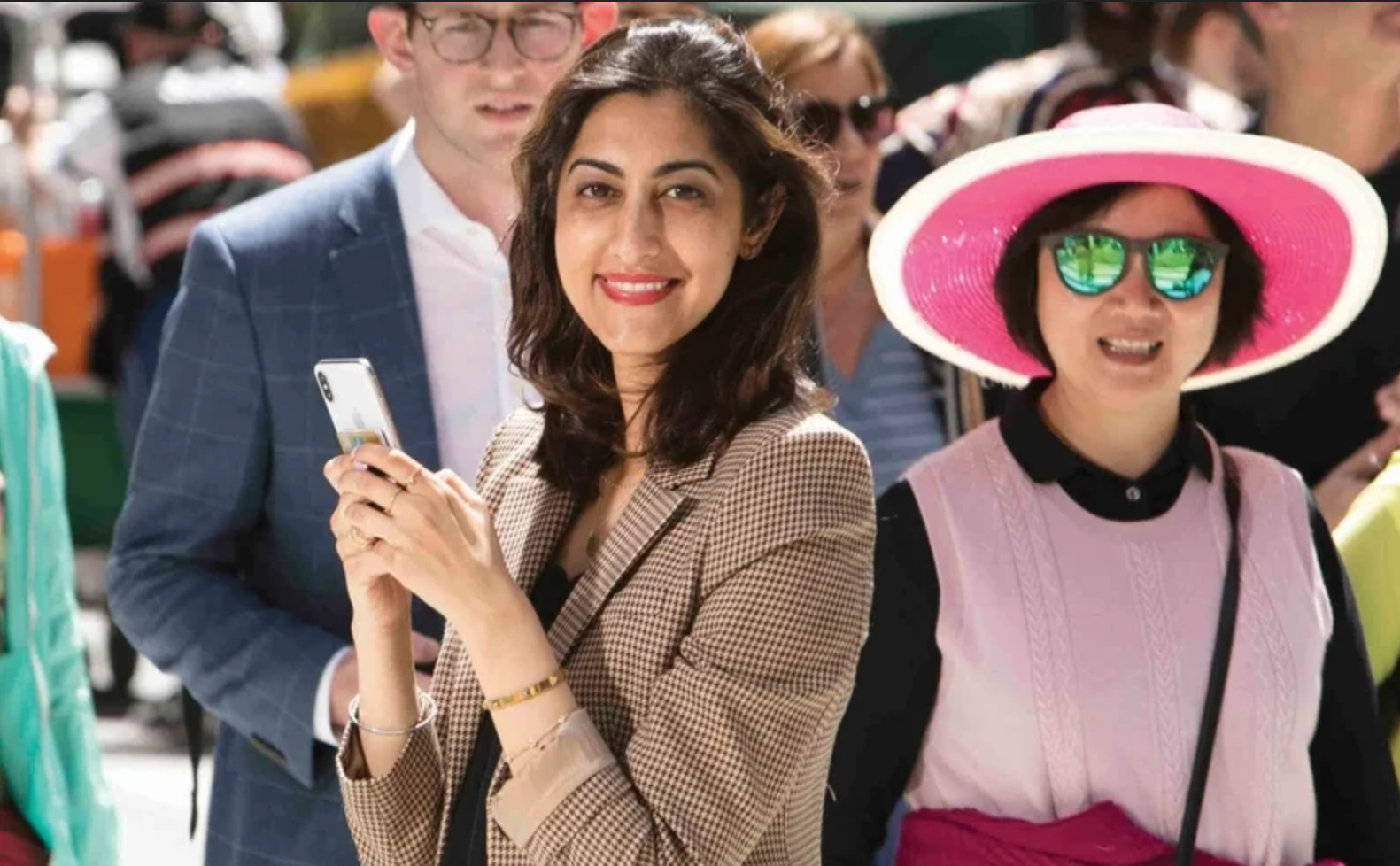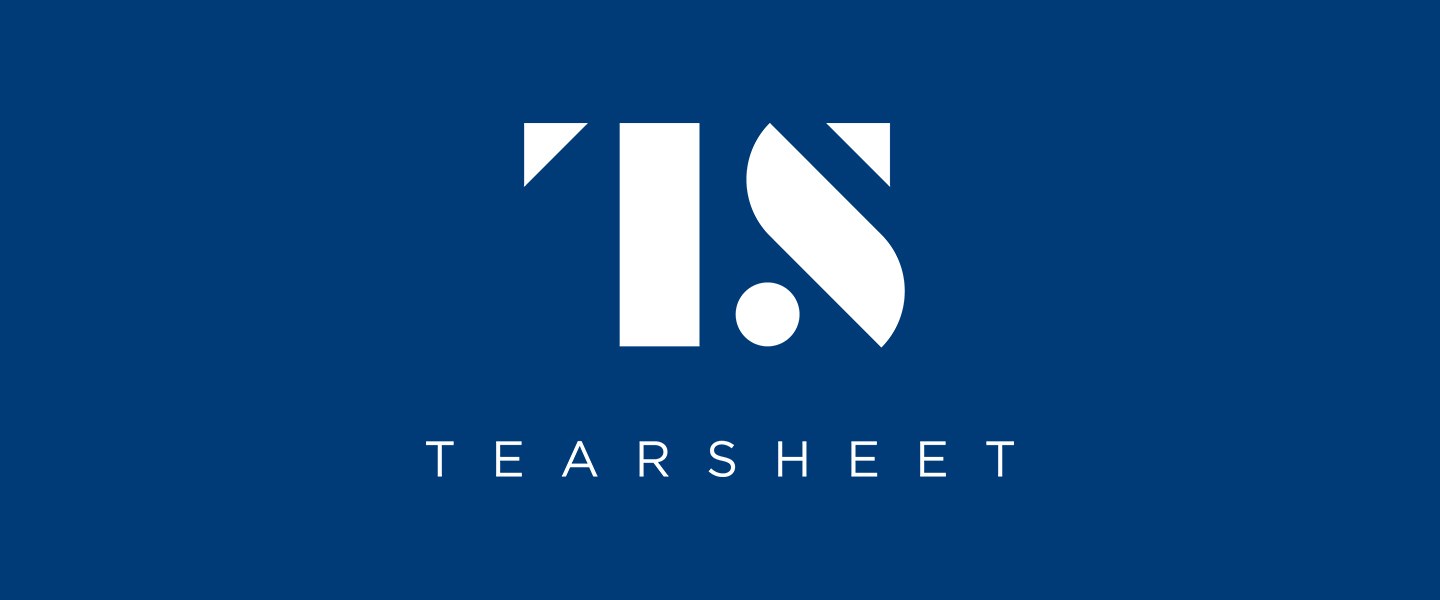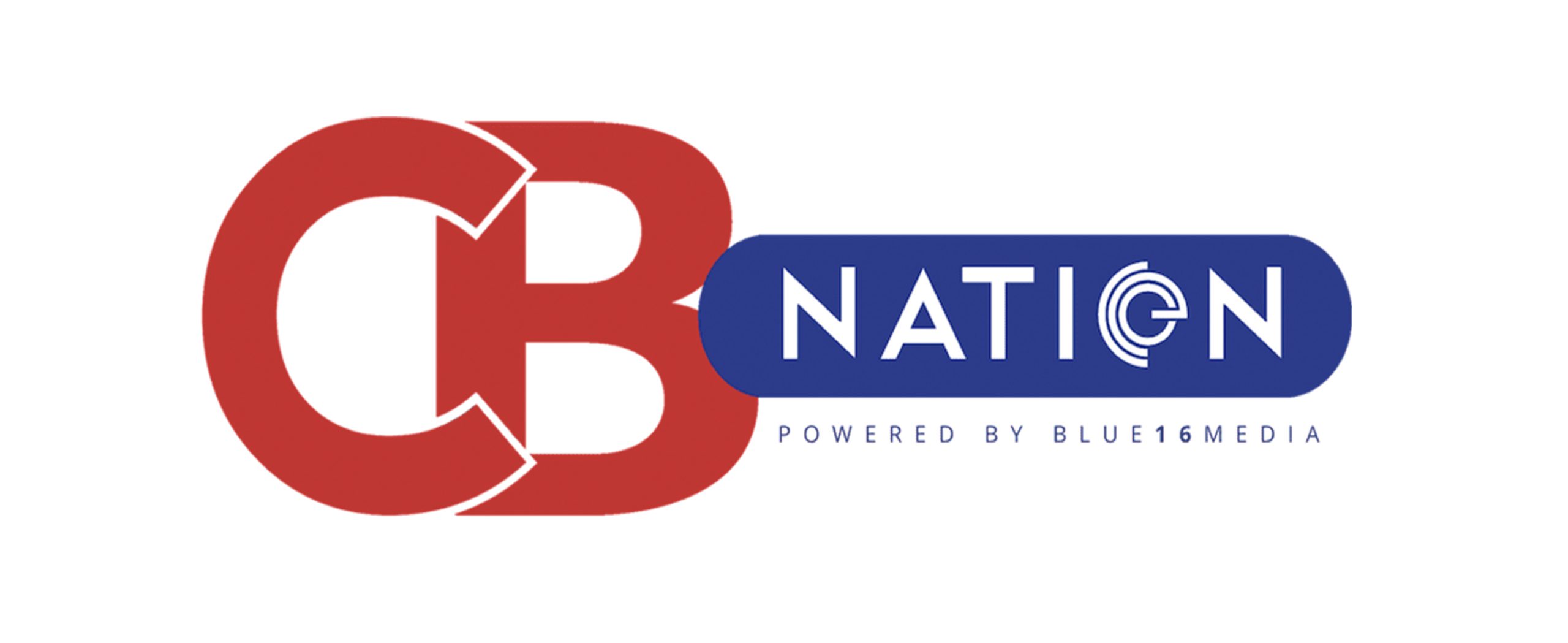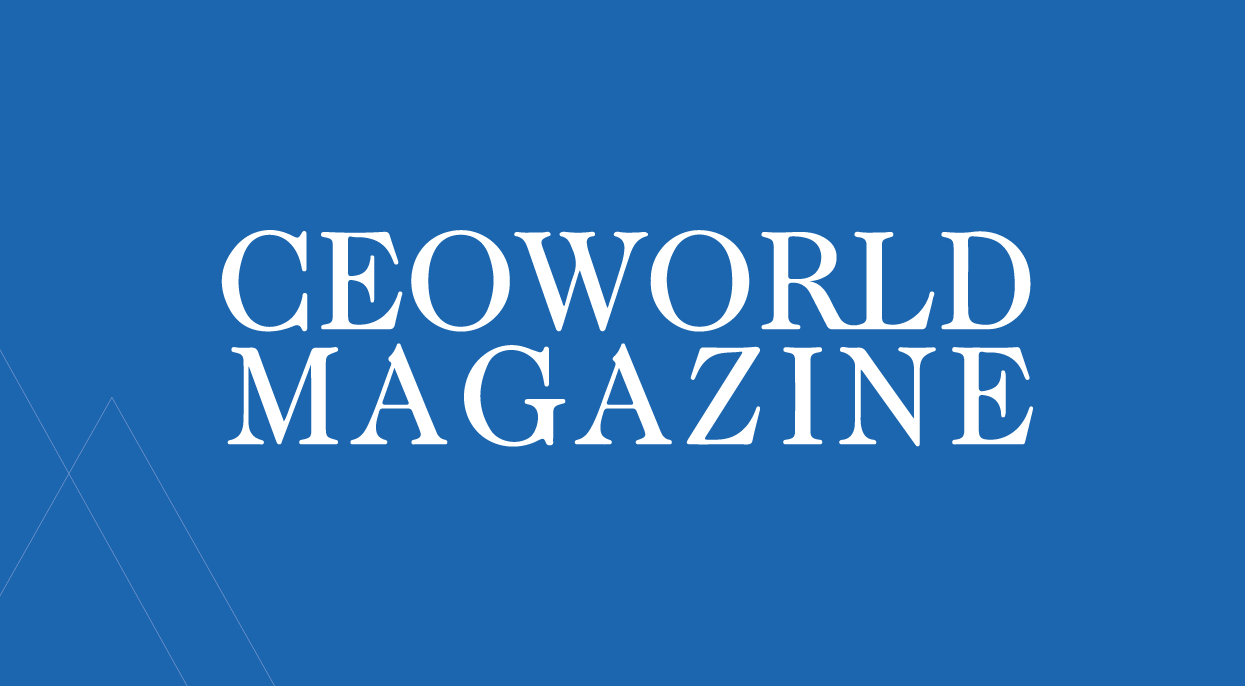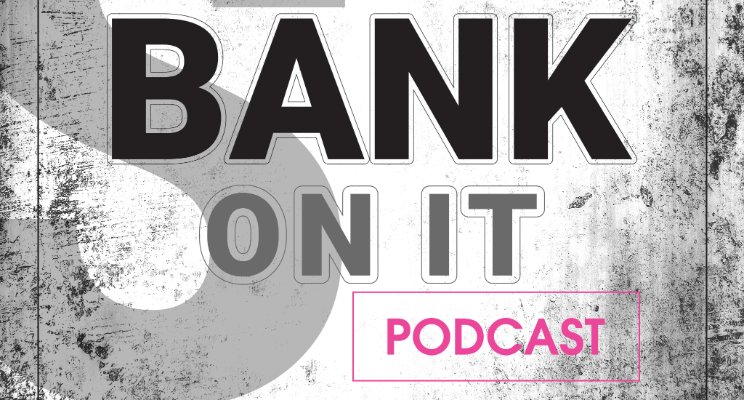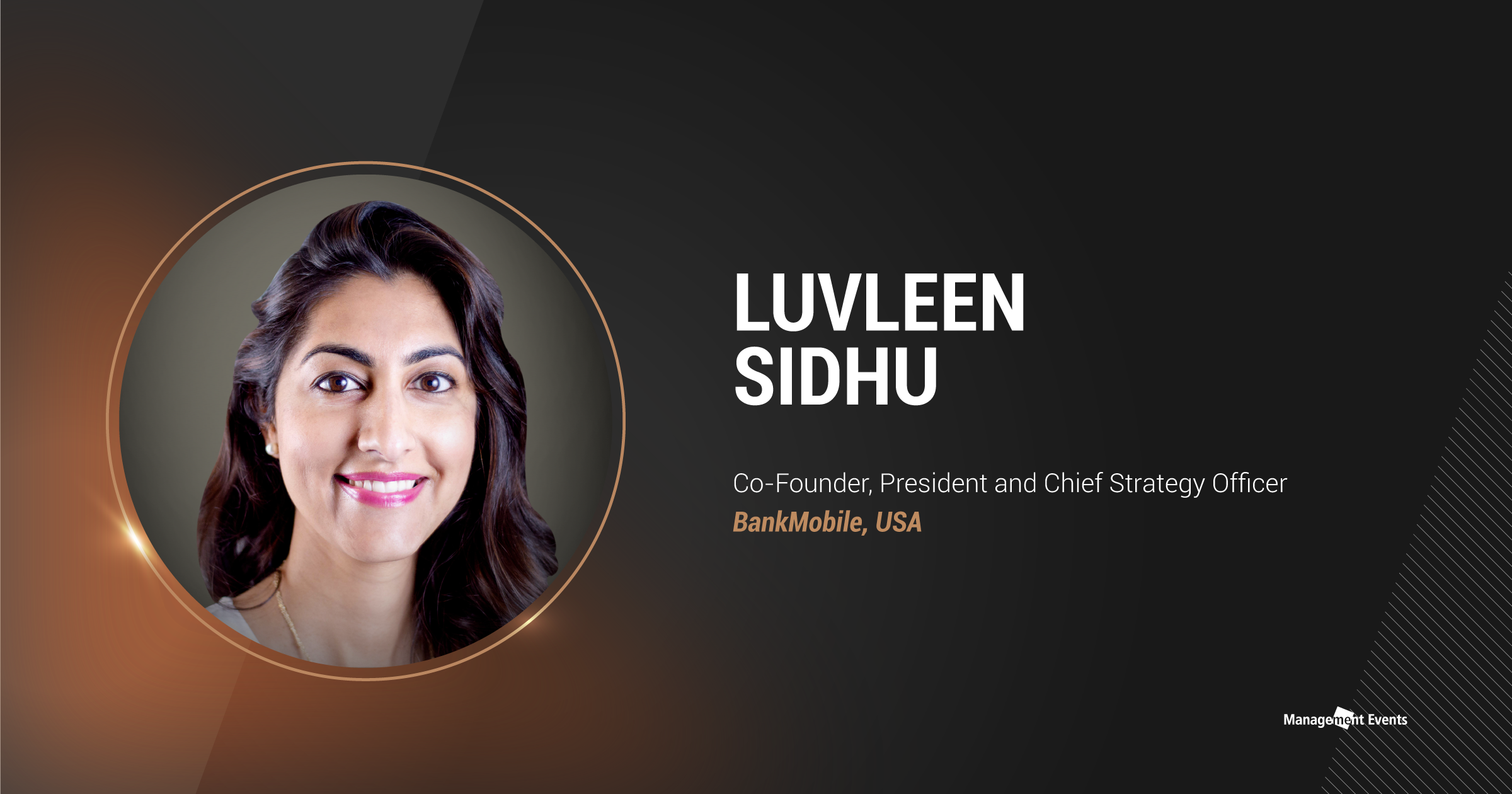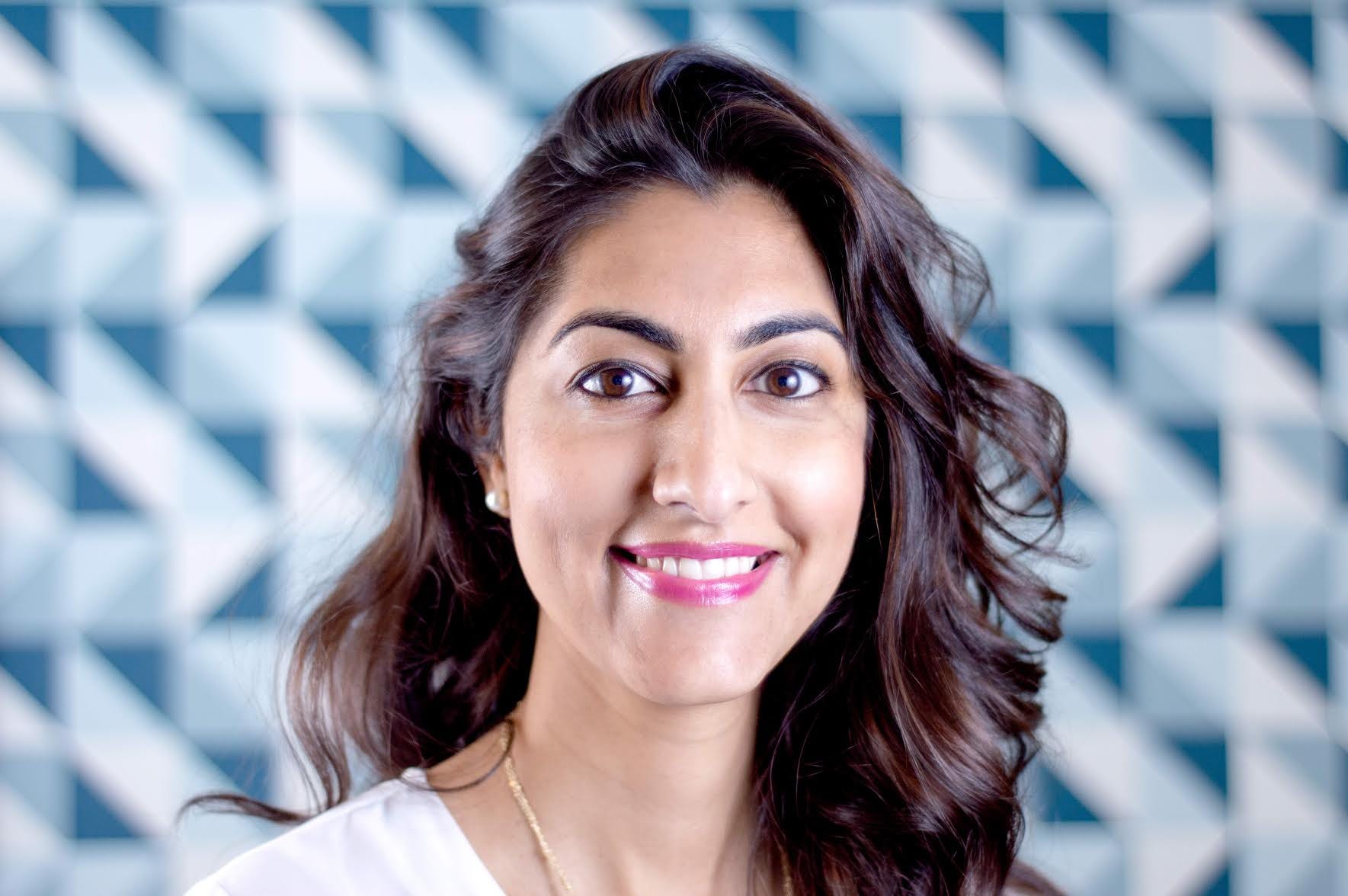Meet The Female Leaders Of Finance With Tyler Gallagher: “I believe that there are macro trends towards embracing diversity” with Luvleen Sidhu and Tyler Gallagher
Tyler GallagherAug 12 · 11 min read
I believe that there is a macro trend towards embracing diversity. I also think the #MeToo movement is bringing awareness to issues faced by women; however, much more attention needs to be brought to the topics of women’s equality and women’s rights. Overall, we are becoming more cognizant and sensitive. There has been progress, but it is far from a reasonable or fair outcome. A large gender income gap still exists. A lot of women are also missing on board seats.
I had the pleasure of interviewing Luvleen Sidhu, founder of BankMobile.
Thank you so much for doing this with us! Can you tell us the “backstory” about what brought you to the Banking/Finance field?
How I came to found BankMobile is a unique story, where every major step I took during and after college led me to its launch.
I was actually a pre-med student at Harvard and on the path to become a doctor. However, I was always intrigued to explore finance, having grown up in a finance and banking family. During my sophomore year, I convinced my parents to let me try a finance internship. I joined the sophomore rotational program at Lehman Brothers and interned with the firm during my sophomore and junior years of college. After graduating, I joined Lehman fulltime. My first full day on the job was the day of the Lehman bankruptcy, which came after six weeks of training. This experience has significantly impacted my career trajectory because it made me more aware of the fragility in the financial system and the importance of helping Americans create a strong financial foundation in their lives.
After Lehman, I joined Customers Bank for a short period in a business development role where I was exploring digital banking models. It was at this time that I learned about Bank Simple, which was one of the first movers to explore the new digital model. I was intrigued by what they were doing and knew they were on to something. After my brief stint with Customers Bank, I enrolled at Wharton for business school and here is where I caught the entrepreneurial bug.
Along the way, my interest in banking continued. I remember opening my first bank account and having to wait 15–20 minutes in line and feeling that the whole experience was very uninspiring and long. I did not feel I had a trusted advisor or partner as I started my first financial relationship. With banking in my genes, I started to look for other pain points and ways to improve the experience. After Wharton, I worked at Booz and Company and helped a large financial institution launch a digital bank.
My experiences across all these organizations culminated in me pitching the idea to Customers Bank on how we can leverage technology to build a better bank. In 2015, we officially launched BankMobile.
Can you share with our readers the most interesting or amusing story that occurred to you in your career so far?
I think the most interesting story in my career is the above-mentioned Lehman Brothers narrative, my first day on the job, September 15, 2008. After the six-week training period, I was gearing up to start fulltime when the firm filed for bankruptcy. I called HR and asked if I should be going in and remember the words told to me, “Business as usual.” It sounded so ironic and it was definitely a unique way to start my career. I was walking in on my first day as, sadly, people were walking out with boxes. That moment in time helped me realize I wanted to help others, and also impacted me enough to create a more affordable banking solution with the launch of BankMobile.
Are you working on any exciting new projects now? How do you think that will help people?
We are very excited about the T-Mobile MONEY checking account. T-Mobile took the broken industry of telecom and helped to improve it dramatically. Similarly, we felt that banking was broken and wanted to improve the experience for consumers. We came together with T-Mobile to solve another consumer pain point and our collaboration is something that we are really thrilled about this year. T-Mobile MONEY is helping everyday Americans have a seamless user experience with a no-fee, interest-earning, mobile-first checking account.
What do you think makes your company stand out? Can you share a story?
I think one of the things that makes us stand out is our “customer-obsessed” approach to banking. We truly want to make a positive impact on our customers’ lives and are always on a mission to financially empower them. One of programs I am most proud of is the Passport Student Success Sweepstakes, which is the BankMobile Vibe Checking Account recognition program for smart money management, academic achievement and good financial behavior. In February 2019, we awarded $10,000 to a University of North Texas graduate to help pay off his student loans. We are making real changes in the lives of our customers.
Wall Street and Finance used to be an “all white boys club”. This has changed a lot recently. In your opinion, what caused this change?
I believe that there are macro trend towards embracing diversity.
I also think the #MeToo movement is bringing awareness to issues faced by women; however, much more attention needs to be brought to the topics of women’s equality and women’s rights. Overall, we are becoming more cognizant and sensitive. There has been progress, but it is far from a reasonable or fair outcome. A large gender income gap still exists. A lot of women are also missing on board seats. Only 24 of the Fortune 500 companies had female CEOs in 2018 and this number represents a decline of 25% from 2017 [Fortune]. Additionally, as of June 2019, a mere 5.2% of S&P 500 companies have female CEOs [Catalyst, Pyramid: Women in S&P 500 Companies (June 11, 2019)]. Female-led companies received only 2.2% of the venture capital money invested in firms in 2018 [Fortune].
We are becoming more sensitive and women have fought for their rights, but we still have a long way to go.
Of course, despite the progress, we still have a lot more work to do to achieve parity. According to this report in CNBC, less than 17 percent of senior positions in investment banks are held by women. In your opinion or experience, what 3 things can be done by a)individuals b)companies and /or c) society to support this movement going forward?
I think companies need to promote women and give them fair opportunities, in order for them to get the mentorship and career trajectory that they deserve. There needs to be pay parity, and leadership needs to make this one of their key areas of focus. Senior management across the board at corporations needs to give light to this. Also, I think the women that reach leadership positions can be a force for accelerating this movement, help others move up and be advocates for equal pay. Companies can also invest in creating programs to specifically help women, such as Goldman Sach’s Launch With GS, which is the firm’s “commitment to invest $500 million in women-led companies and investment managers.”
On an individual level, I want to make sure that there is a strong female representation on the BankMobile advisory board and that we are promoting women from within. For example, we recently promoted Regine Fiddler, who served as our Vice President, Marketing and Product Management, to our Chief Marketing Officer position. She has earned this role and now has a seat at the table and is helping others pave the path forward.
You are a “finance insider”. If you had to advise your adult child about 5 non intuitive things one should do to become more financially literate, what would you say? Can you please give a story or example for each.
1) Talk about money with your friends. While you do not need to get into specifics, tapping into your close network can be a beneficial way to learn what tips or tricks they may be using to manage their money. Oftentimes, even though your friend group might come from different socioeconomic backgrounds and have diversity in terms of jobs, etc., you can learn what does and what might not work for one another, and apply it to your own life. Maybe they are going through, or have gone through experiences that you are questioning when it comes to your own financial situation, and insights from someone you trust can provide the perspective you need. On the other hand, you can also learn from their situations if they have made some not-so-savvy decisions, and learn from their past mistakes.
2) Watch documentaries. If you browse through Netflix or Hulu, there are countless options available that show the life story of notable people who once struggled with money. While sometimes these films can be dramatized, the premise of seeing someone’s path and their financial journey can be inspiring. A great example of this is Magic Beyond Words: The JK Rowling Story. Knowing that the author of the Harry Potter franchise once struggled financially and had to live on welfare to survive and now has a net worth of over $1 billion is a testament of how believe in your dreams can help you overcome any financial hardship.
3) Follow popular trends. Keep note of what is trending in the marketplace, and pay attention to the stock prices of the companies or entities involved with the trend. This can help you learn how different events influence stock prices, while familiarizing yourself with the process. An example of this is when Disney released Black Panther, which broke box office records by grossing over $1 billion, which caused Disney’s stock value to rise [MarketWatch].
4) Attend investment seminars. At these types of events, you are given the opportunity to network and connect with like-minded people who are interested in building their wealth. Investment seminars are filled with people who invested their money (and their time!) to attend, which indicates that they are serious about building their wealth, and looking towards those who can help them get there.
5) Find a mentor. Look for someone who can guide you on the ‘dos’ and ‘don’ts’ within your particular field or industry, but can also guide you financially. Finding a mentor does not necessarily mean someone who is much older or far more advanced in their career, it could be a colleague who is at a similar level with skills or accomplishments you admire. Tapping into someone that you can relate to on this level, who can provide you with insights outside of your normal realm of thinking, can add value to your career, but also save you both time and money in the long run.
None of us are able to achieve success without some help along the way. Is there a particular person who you are grateful towards who helped get you to where you are? Can you share a story about that?
My father, Jay Sidhu, Chairman and CEO of Customers Bank and BankMobile, has been a great role model for me throughout my whole life and continues to be someone I look up to. He is a visionary and always thinks outside of the box, a quality that I have always admired and tried to follow. Jay focuses on how to deliver value and have a strong work ethic, and build a business that does well by doing ‘good.’
In 2014, we combined forces. He is a traditional leading banker and I am a millennial who loves innovative ideas. My insights around customer-centricity and technology coupled with his industry expertise, learnings and drive helped us launch BankMobile and create our Banking-as-a-Service (BaaS) platform.
Can you please give us your favorite “Life Lesson Quote”? Can you share how that was relevant to you in your life?
“Tough times don’t last but tough people do”
We founded BankMobile with a lot of skepticism in the industry and had to be extremely diligent throughout the launch process, making sure we were compliant and also resilient. Early on, our original B2C platform was not growing at the exponential rate that we needed to and we faced challenges. Instead of giving in, we re-strategized and were able to use that challenging time to pivot our strategy to a B2B2C platform, which we now call our Banking-as-a-Service (BaaS) platform. I always remind myself that when things are difficult, I have the opportunity to learn from them. I think this is important in life and also as an entrepreneur. It is not an easy road, but one that can be very rewarding if challenges are seen as opportunities to grow and if you remain passionate about your venture.
You are a person of great influence. If you could inspire a movement that would bring the most amount of good to the greatest amount of people, what would that be? You never know what your idea can trigger. 🙂
For the business that I am in, there are over 65 million unbanked and underbanked in the U.S. These individuals are not part of the traditional banking system. They do not trust banks and are skeptical and also, because of the monthly fee requirements, often locked out of the system. Due to these circumstances, they often opt to work with payday lenders and alternative banking solutions where 10% of their income goes towards the exorbitant fees of these providers.
I hope to inspire the movement of providing banking services that are affordable without outrageous fees, to have financial education, to not be in the business of making money by having our customers mismanage their money. I hope that a movement starts that will help people manage and grow their money, and achieve dreams that they can set for themselves, to be a banking partner that wants to help. That is the movement we are trying to create.
Thank you for all of these great insights!
About The Author:
Tyler Gallagher is the CEO and Founder of Regal Assets, a “Bitcoin IRA” company. Regal Assets is an international alternative assets firm with offices in the United States, Canada, London and Dubai focused on helping private and institutional wealth procure alternative assets for their investment portfolios. Regal Assets is an Inc. 500 company and has been featured in many publications such as Forbes, Bloomberg, Market Watch and Reuters. With offices in multiple countries, Regal Assets is uniquely positioned as an international leader in the alternative assets industry and was awarded the first ever crypto-commodities license by the DMCC in late 2017. Regal Assets is currently the only firm in the world that holds a license to legally buy and sell cryptos within the Middle East and works closely with the DMCC to help evolve and grow the understanding and application of blockchain technology. In addition to his role with Regal Assets, Tyler is a regular contributor to Forbes, Arianna Huffington’s Thrive Global and Authority Magazine. Tyler has also been featured in many news publications and has been a guest expert on “The News with Ed Shultz”. Tyler is a proud member of the Forbes Finance Council a private invite only-group of hand-selected industry leaders.




